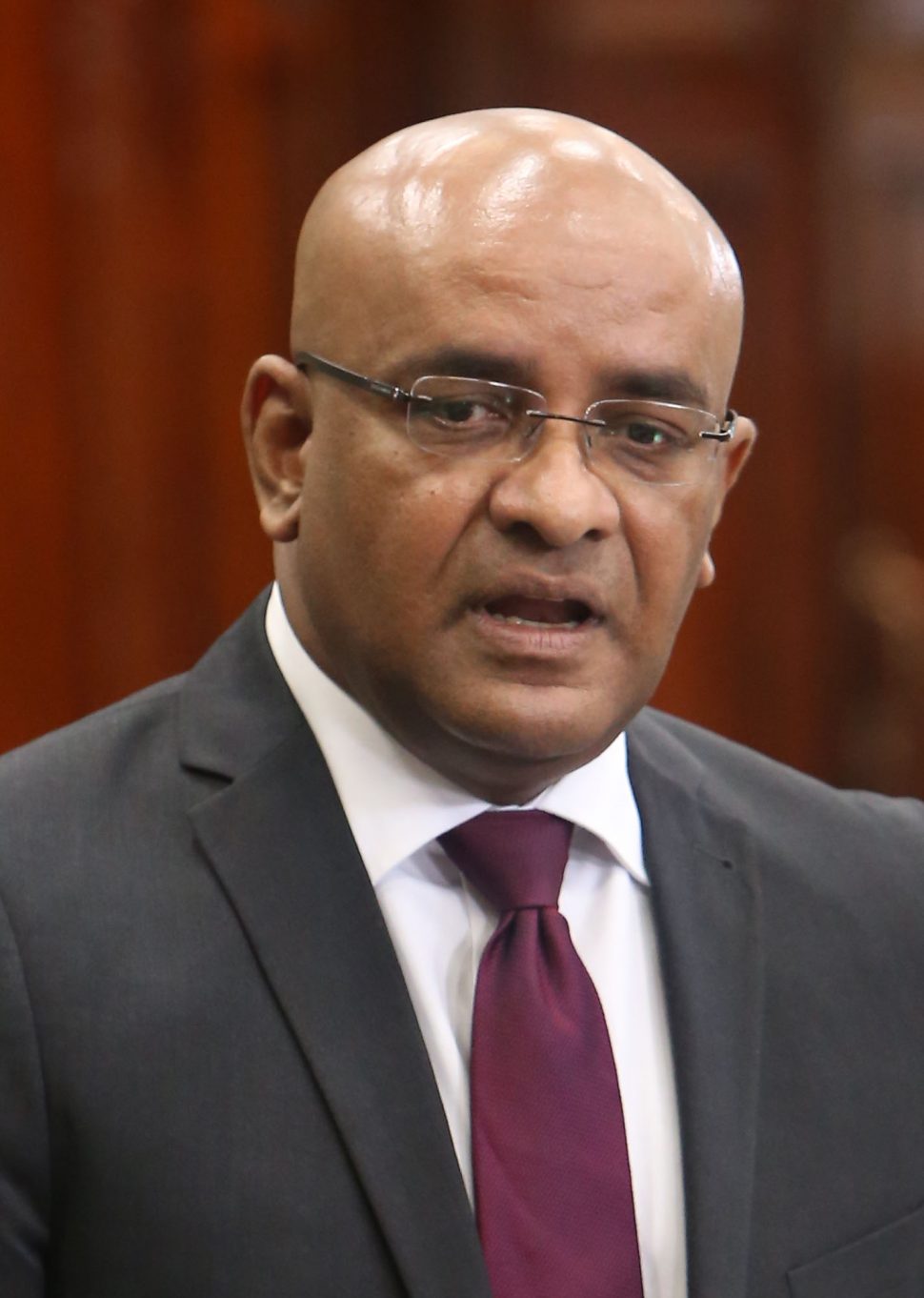Leader of the Opposition Bharrat Jagdeo yesterday declared that both the Global Witness report and that by the United Kingdom-based law firm Clyde and Company, have shown the world that Guyana was “under-served” by the David Granger led government during the 2016 negotiation with ExxonMobil’s subsidiary Esso Exploration and Production Guyana Limited (EEPGL).
“The [Global Witness] report pointed out to the entire world and to Guyanese in particular the ineptitude, incompetence and duplicity of this government and how under-served we were in those negotiations,” he declared at his weekly press conference.
In an explosive report released last week, the international anti-corruption group said that statistics and calculations show that Guyana has an oil deal far below global standards and will lose out on up to US$55 billion over the 40-year period of the licence for the Stabroek Block, which is held by ExxonMobil and its partners.
They have recommended that Guyana renegotiate the contract and investigate the process by which the Stabroek licence was negotiated.
“This should include a review of whether an apparent conflict of interest prevented Raphael Trotman from fully negotiating in the best interests of the country,” the report states.
According to Jagdeo while some persons have argued about whether the numbers presented by Global Witness are accurate, that is not the point.
“You can differ on the number. I don’t know what the number is. It could be (US) $40, $55 or $70 billion but the key point is that Guyana did not get a fair deal,” he stressed.
He also reminded that the report pointed out that there was a refusal of expert advice.
“This is really bad because just the weekend before they signed the deal they sent it to two experts who both said do not rush at least wait for the announcement of results from Liza II which would put you in a stronger position but instead they rushed to do this,” he lamented.
Seeking to distance his party from the timing of the report, Jagdeo said that the interest of the international NGO was likely triggered by the investigation into the awards of oil blocks which the State Assets Recovery Agency (SARA) began last year.
Shift
According to him government sympathizers have been trying to shift the narrative from the “incompetence and possible large scale corruption” to trying to discredit the report and the organization that issued the report.
“Suddenly global witness which is an international NGO which has been around for years is a friend of the PPP. Let me say, the People’s Progressive Party did not bring Global Witness here. We have no such power over Global Witness which is an international NGO, and I suspect that their presence here was largely by this Government’s own hand,” he stressed while directing that persons should pay attention to the contents of the report.
He argued that the APNU+AFC government which “hangs on tenaciously to every scrap of positive reporting from an international organization” knew that the Global Witness report was going to be negative and commissioned a rebuttal.
“They knew about Global Witness presence in Guyana…they knew there would be an adverse finding,” he stressed.
According to the Cabinet-commissioned review by Clyde and Company the agreement was negotiated and executed in accordance with the law though a lot of pressure was placed on government for a speedy signing prior to the scale of the “world class” Liza-2 discovery becoming fully known and understood.
“Overall, the 2016 Agreement contained some improvements in comparison with the 1999 Agreement. The Contractor Consortium was not receptive to any changes and fought hard to retain the same terms as in the 1999 Agreement. There were also changes that were of benefit to the Contractor Consortium,” it concluded.
Jagdeo has argued that government allowed themselves to be pressured and are now presenting an “asinine” defence.
Prime Minister Moses Nagamootoo claimed at a public meeting that the negotiations were concluded at the time they were to prevent ExxonMobil from exiting Guyana in the face of Venezuela’s renewed claim.
“Venezuela’s claim started in the 1960s. Exxon knew of this claim when they signed the agreement in 1999. This is an asinine explanation and their own report dispels this claim,” Jagdeo argued.
According to the report ExxonMobil pressured the Guyana government to conclude the 2016 deal in a short time frame because of “commitments for drilling rigs that the Contractor Consortium said would need to be stepped away from if a new agreement was not signed.”
“It seems to us likely that EEPGL were also strongly driving to have a new agreement signed prior to the Liza-2 well results becoming fully known and understood by the Government. Presumably because knowledge of a `world class’ discovery could have altered the Government’s negotiating position,” it added.
Jagdeo highlighted this finding explaining that while having a presence offshore can be strategic for Guyana in its case against Venezuela it did not need to come at the cost of billions in revenue.
He further noted that even with these two reports several questions remain about the 2016 agreement including the “bridging deed” and its execution as well as the cost to the taxpayers of the report filed by the international law firm.
Jagdeo stressed that if the firm was employed and paid by government then their findings cannot be considered independent.
“They never met with civil society or the opposition so to describe the report as Independent is misleading. Did the Government of Guyana pay or did an oil company? If they are paid by the government the report cannot be independent. If you are working for a client then your report is not independent,” he explained.






